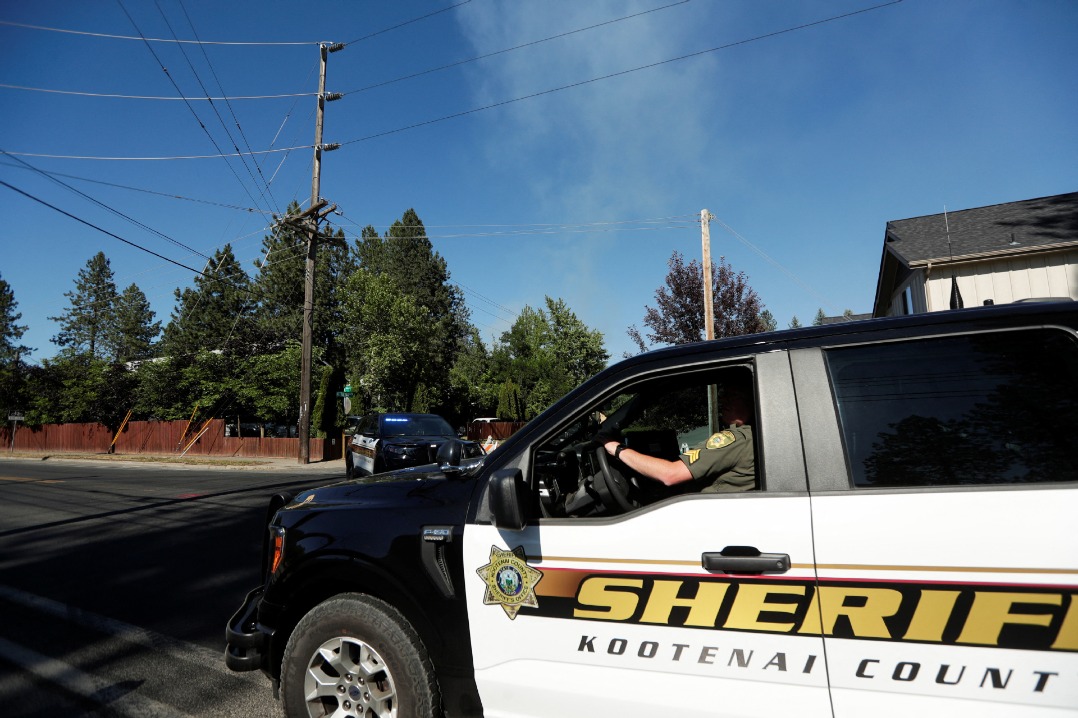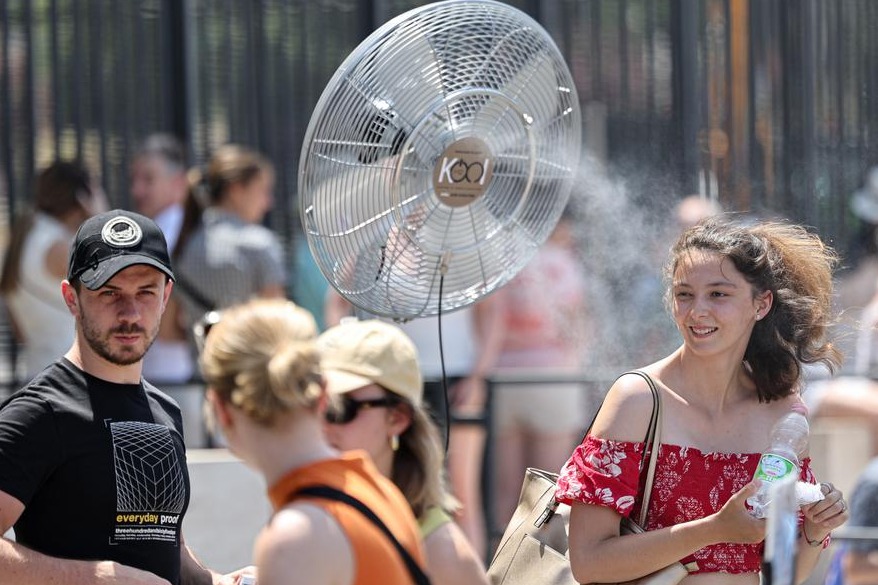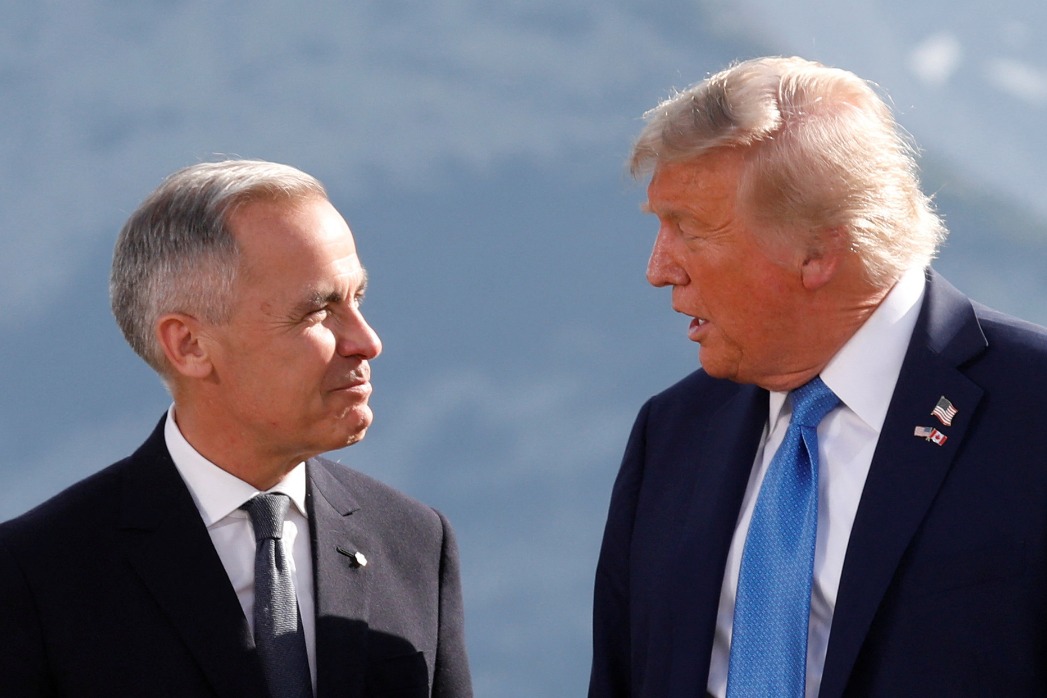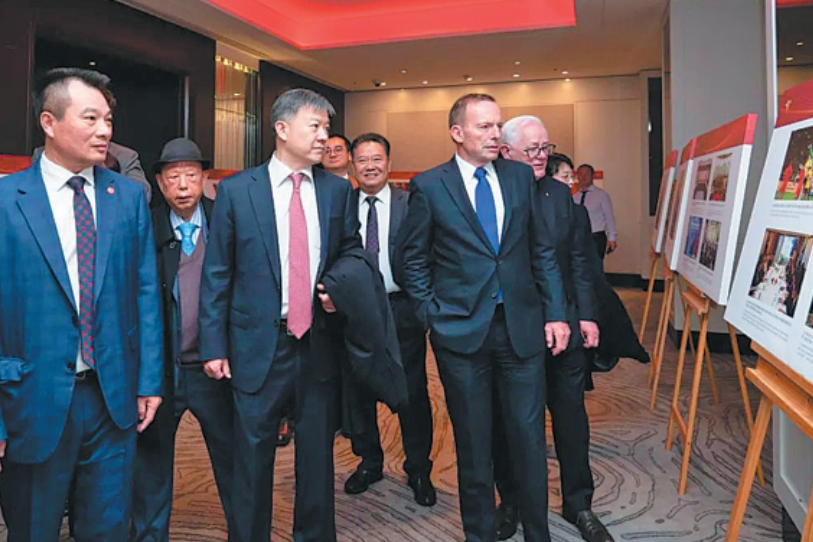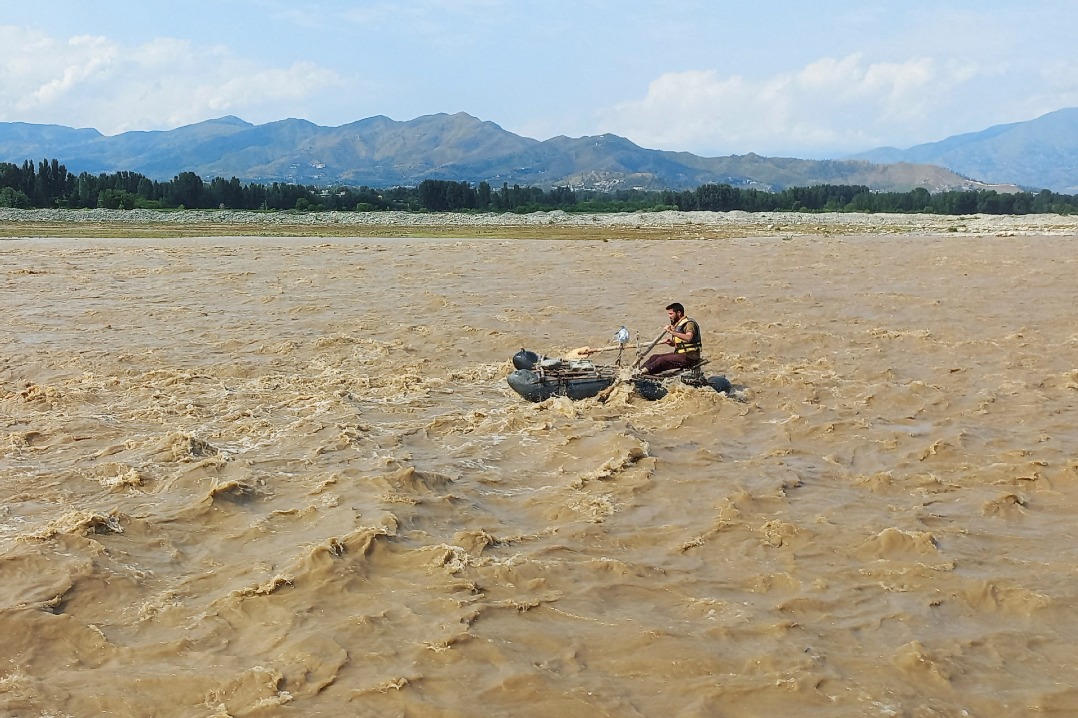AU launches space-based early warning system to tackle climate threats

The African Union has unveiled a new space-based initiative aimed at strengthening the continent's ability to anticipate and respond to climate-related disasters, as climate change continues to threaten development gains and food security across Africa.
Space for Early Warning in Africa or SEWA was launched in Windhoek, Namibia, during a joint forum organized in collaboration with the Intra-ACP (African, Caribbean, Pacific Group of States) Climate Services and Related Applications project.
The initiative will leverage earth observation data from satellites to improve early warning systems for extreme weather events and climate hazards across sub-Saharan Africa. The goal is to provide timely, localized and accessible information that can help protect lives, livelihoods and ecosystems.
"With 55 to 62 percent of sub-Saharan Africa's workforce engaged in agriculture, we must prioritize climate services to safeguard livelihoods and enhance food security," said Moses Vilakati, commissioner for agriculture, rural development, blue economy and sustainable environment at the African Union Commission.
He emphasized that climate change is worsening vulnerabilities across the continent—especially among poor, rural and female-headed households. In rapidly growing urban areas, informal settlements lacking essential services are further heightening the risk from climate shocks, he said.
Vilakati stressed that investment in climate resilience is no longer optional, adding that SEWA will be an essential program that empowers Africa to adapt to climate change and fight poverty in the region.
Despite Africa's high exposure to climate risks, the continent remains underserved when it comes to weather monitoring and forecasting infrastructure. According to the AU, Africa has the least developed land-based observation network globally. The lack of robust data systems limits its capacity to deliver effective climate services, especially in remote and marginalized communities.
The AU noted that as of last year, about 40 percent of Africa's population had access to early warning systems, with many services hindered by issues of affordability, localization and communication.
"This gap highlights the pressing need for improved climate information dissemination, investment in monitoring infrastructure, and strengthened institutional capacities," the AU said in a statement on Tuesday.
Representing the host government, Jonas Sheelongo from Namibia's Ministry of Works and Transport said SEWA represents a shared vision for disaster preparedness across Africa.
"It is about using cutting-edge space technology and satellite-based systems to deliver accurate, timely and inclusive information that can help save lives, protect livelihoods, and build resilience," Sheelongo said.
Namibia, he noted, has experienced both prolonged droughts and devastating floods in recent years. "This makes initiatives like this one not only timely, but urgent," he added.
The SEWA forum also serves as a platform for enhanced South-South cooperation among African, Caribbean and Pacific countries, with the AU saying it will help strengthen knowledge-sharing, strategic partnerships, and resource mobilization.
As climate impacts deepen across Africa, Vilakati said the African Union is banking on programs such as SEWA "to provide the early warnings and data needed to build a resilient and climate-smart future for the continent."
















